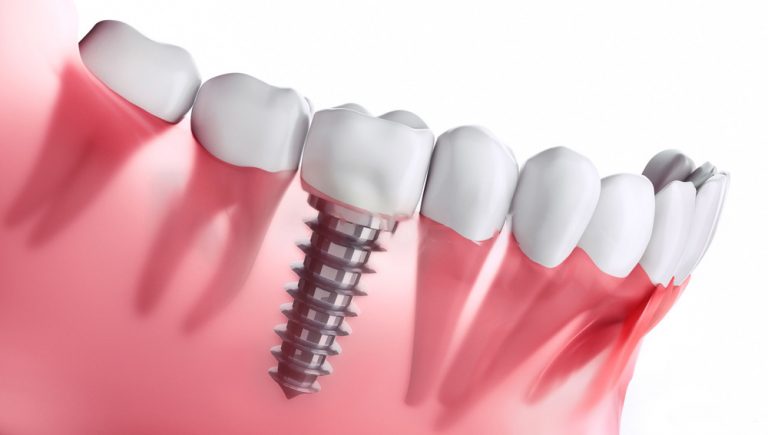An implant procedure can replace one or several missing teeth. It also can fix a full denture to the jaw bone with special attachments (similar to press-studs) to hold a denture.
Good oral hygiene is crucial for implant health. Like real teeth, implant teeth that are not regularly brushed and flossed can develop a deposit that eventually leads to bleeding gums, loss of bone, infection and pain.
While most people can have dental implant, exceptions include:
- Age- children younger than 17 years are usually not considered suitable because their bones are still growing.
- Bone loss- a patient who lost jawbone due to gum disease or previous extractions are not be suitable for implants. In these patients, additional bone replacement treatment is required to rebuild enough bone for an implant site.
- Smoking- smoking impairs healing and may cause implant failure by preventing the implant from integrating with the bone. Over time, smoking may cause a breakdown in the integration between the implant and the bone.
- Uncontrolled diabetes increases the risk of complication, including infection and delayed healing around implants.
- Alcohol and Drug abuse- the patient may have dietary problem, be unable to follow the dentists instructions, of fail to maintain proper oral hygiene.
- Psychological illness- the patient may be able to follow the dentist’s instructions.
About one implant in 20 fails to integrate with the bone or fail by gum disease. The factors that can alter the long term success of implant include:
- The bone density and strength
- The location of the implant
- The patients general health
- Patients commitment to oral hygiene
- Smoking
- Realistic expectations
Implant procedures are challenging, and the result may be less satisfying than you expected. Discuss your expectation with your dentist and make sure you have a realistic understanding of the procedures benefits and limitations.
While dental implants are considered to be permanent, you should have regular dental check-ups and maintenance to keep you implants last longer.
The dentist will perform diagnostic test to confirm that you are suitable to have implants. These tests include:
- Dental examination
- Dental X-rays radiograph
- CT scans of your jawbones
- Dental casts of your mouth.
Treatment for other dental health problem
If you decide to have a dental implant, your problems such as decay or gum disease that contribute to the loss of your natural teeth need to be diagnosed and treated to ensure the ongoing success of the implant following the procedure.

